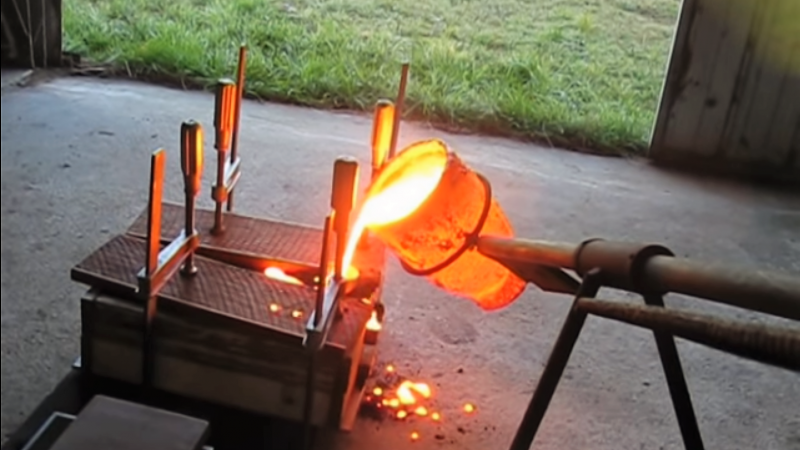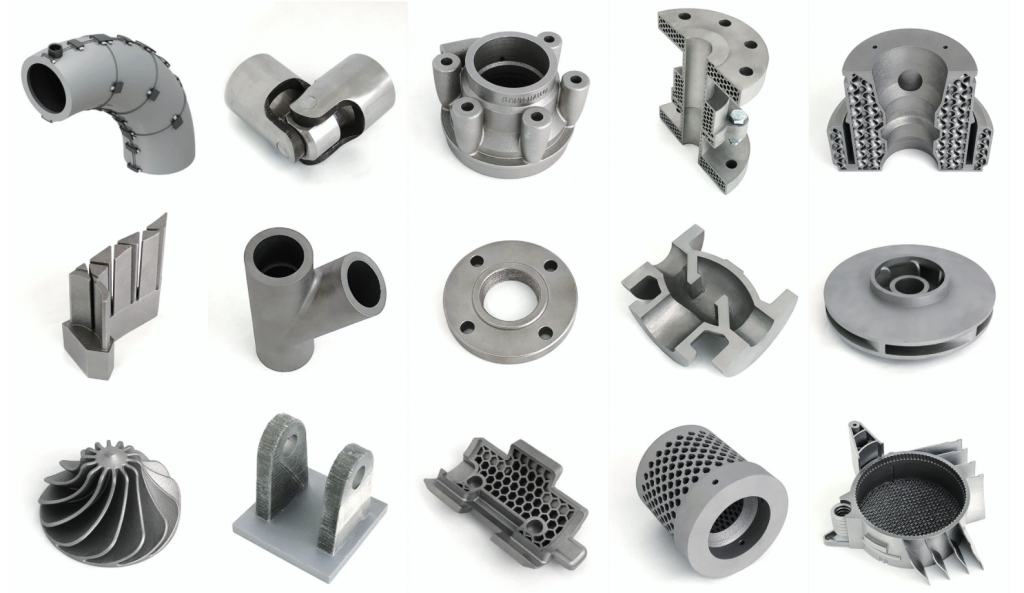How an Aluminum Foundry ensures integrity through advanced technology
Wiki Article
Finest Practices for Maintenance and Applications in the Light Weight Aluminum Foundry Field: A Comprehensive Review
Keeping tools in the light weight aluminum shop field is crucial for functional success. Regular inspections and anticipating upkeep can significantly lower downtime and boost safety and security. Advanced technologies, such as IoT and information analytics, play a crucial duty in this process. Recognizing the complete scope of ideal practices calls for a more detailed assessment of particular methods and their effects on efficiency. What are the important parts that add to a reputable maintenance framework?Significance of Regular Upkeep in Light Weight Aluminum Foundries
Regular maintenance plays an important duty in the effective procedure of aluminum shops. By systematically inspecting and servicing equipment, shops guarantee peak efficiency and durability of equipment. Routine upkeep tasks, such as component, lubrication, and cleansing replacement, assistance protect against unforeseen failures that can result in costly downtime.Furthermore, routine checks improve workplace security by determining possible dangers prior to they intensify right into major problems. Equipment that is well-maintained runs more efficiently, resulting in boosted product high quality and minimized waste. In addition, adherence to a structured upkeep timetable can sustain compliance with market laws, thereby fostering an online reputation for dependability and quality within the market.
Executing Predictive Maintenance Approaches
Anticipating upkeep strategies take the principles of routine maintenance a step even more by leveraging information analytics and progressed tracking modern technologies. In light weight aluminum shops, these strategies enable operators to anticipate equipment failures before they occur, thereby decreasing unplanned downtimes and enhancing functional performance. By utilizing sensors and IoT devices, real-time data can be collected on machine performance, allowing for the recognition of possible concerns via anticipating analytics.Enhancing Melting and Pouring Processes
Efficient melting and pouring processes are essential for making the most of productivity and assuring the top quality of light weight aluminum castings. To improve these processes, foundries should concentrate on specific temperature level control during melting, as this directly influences the metallurgical properties of the alloy. Making use of sophisticated melting innovations, such as induction and resistance melting, can improve power performance and lower cycle times.Moreover, executing automated pouring systems decreases human error and keeps uniformity in the pouring procedure. Correct mold and mildew prep work, consisting of sufficient preheating, is crucial to prevent thermal shock and boost mold durability.

Enhancing Security Protocols in Shop Procedures
Prioritizing safety in light weight aluminum foundry procedures is important for shielding workers and assuring an efficient environment. Reliable security protocols consist of regular training sessions that stress the significance of personal protective tools (PPE), such as safety helmets, safety glasses, and gloves. Furthermore, the facility of clear emergency treatments is essential in handling possible crashes.Routine evaluations of tools and machinery assistance recognize hazards before they rise right into major problems. Applying a durable reporting system encourages employees to communicate security worries without fear of repercussion. Fostering a society of safety and security warranties that every worker recognizes their function in keeping a safe and secure workplace.
In addition, guaranteeing proper air flow and surveillance air top quality can minimize direct exposure to hazardous fumes and dust. By reinforcing these methods, aluminum factories can considerably minimize the danger of mishaps and produce an environment where staff members feel valued and risk-free, inevitably improving general operational effectiveness.
Leveraging Innovation for Improved Efficiency
Making use of innovative modern technology has actually ended up being progressively important for aluminum shops intending to improve operational efficiency. Automation and robotics play a vital duty in enhancing manufacturing procedures, reducing labor costs, and minimizing human mistake. Executing real-time monitoring systems allows for the continual evaluation of tools performance, making it possible for positive upkeep and reducing downtime.
Furthermore, the combination of information analytics supplies beneficial understandings into functional process, facilitating far better decision-making and resource allowance. Anticipating analytics can determine possible failings prior to they take place, further optimizing upkeep schedules.
Furthermore, taking on innovative melting and casting innovations boosts energy effectiveness and material yield, which are essential for sustainability in the sector. By accepting aluminum casting company these technical improvements, aluminum factories can not just increase efficiency yet likewise maintain a competitive edge in a progressively requiring market (Aluminum Casting). Inevitably, leveraging modern technology is essential in driving technology and enhancing general functional performance within the sector

Regularly Asked Questions
What Are Usual Signs of Devices Wear in Light Weight Aluminum Foundries?
Usual indicators of equipment wear in aluminum shops include unusual sounds, decreased effectiveness, increased vibration, overheating components, leakages, and noticeable corrosion. These signs often indicate the demand for upkeep or possible replacement to prevent pricey downtime.How Can I Train Personnel for Effective Upkeep Practices?
To educate team for effective upkeep methods, one can carry out hands-on workshops, create comprehensive handbooks, urge mentorship programs, and perform regular assessments to examine skills and understanding, making sure all staff members understand maintenance procedures thoroughly.What Are the Environmental Regulations for Aluminum Foundries?
Aluminum foundries are subject to different environmental guidelines, including discharges control, waste administration, and resource conservation. Compliance guarantees minimal environmental effect, promoting sustainability while adhering to local, national, and worldwide ecological criteria and laws.Just How Do Shops Take Care Of Waste and Recycling of Light weight aluminum?
Shops take care of waste and recycling by applying systems for gathering scrap aluminum, utilizing advanced separation modern technologies, and teaming up with reusing facilities to ensure efficient recovery procedures, thus reducing environmental influence and advertising sustainability within the market.What Are the Costs Connected With Implementing Advanced Technologies?
Implementing innovative modern technologies in foundries incurs significant prices, consisting of initial investment, training, and upkeep costs. The long-lasting advantages, such as enhanced efficiency and minimized waste, typically validate these expenses, leading to improved earnings. (aluminum foundry)
Report this wiki page